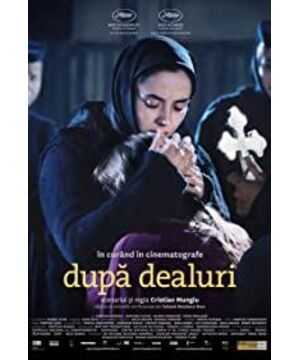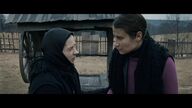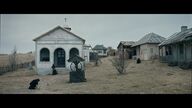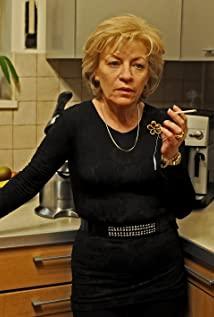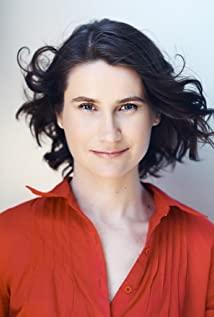The two returned to the monastery where Vickya lived. This is not as beautiful as Alina imagined. There are only a few dilapidated wooden houses. In the cold Romanian winter, they have to draw water from the well, use candles to light, and calculate fuel for heating.
Alina and Vikkiah have lived in the same orphanage since they were young, and the experience of relying on each other even caused the two to have an ambiguous relationship between the same sex. But after growing up, the tough Alina went to Germany to work alone, and the weak Vikkiah came to this monastery, and gained a sense of security that she had never had before. Alina came this time, in fact, she wanted to take Vickya away, live together, and no longer be alone.
This monastery has a priest who once worked in a thermal power station and claimed to have seen angels, and several nuns who came here to escape domestic violence or dare not face life. A failed man who needs to be worshipped used religious rituals to numb several cowardly middle-aged women-this is everything in Alina's eyes. Alina has a typical orphan character: sensitive, aggressive, and lack of basic trust in the outside world. After being abandoned in childhood and facing the cold reality alone in adulthood, one can imagine what kind of heart she has. As an intruder who suddenly came to this monastery, she dismissed the prayers and rituals before her. Her existence is like a dagger, cutting open the hypocritical veil with precision. In the priest's mind, her disdain has challenged her authority, and in the eyes of the cowardly nuns, the safe shelter she runs carefully may be destroyed by this girl.
Feeling depressed, Alina begged Vickia to leave with herself again and again, but her former partner had been melted by the stability here, and she no longer wanted to venture out to explore the cold outside world. The faint rift between the two gradually widened. Alina lost control step by step in an atmosphere of sadness and depression about to lose her love forever. She yelled, taunted priests, broke into the temple, and smashed sacred objects. When everything was out of control, the priest and nuns decided to exorcise Alina.
The priest chanted a curse of both god and evil, and those nuns who had already turned in independent thinking ability successfully became accomplices. In the name of a god, they lifted Alina onto a wooden plank and bound it with a dog's chain, yelling, "The devil has tortured her so much". But they will not introspect that they are the real evil devil.
The crowd rushed Alina, who had passed out in a panic, to the hospital, but what was ushered in was another form of indifference. Faced with a cold body, the doctor who determined that Alina was dead refused to try to rescue him, and started talking with friends about the evening party on the phone... If religious fanaticism and the deprivation of independent thinking are the superficial reasons for the tragedy , Then the indifferent secular society is the deeper crux of the tragedy. Romania, a former socialist country where vampire legends circulate, leaks the ruined background everywhere in the film. The black burqa is like ghosts and ghosts. The distant mountains and bushes, white snow and mountain villages, all the cold scenes are stubbornly stubbornly by the director Meng Ji. Push to death with a long lens. Alienation and hypocrisy permeated everyone like air. Vickya seemed innocent but was actually a passive and silent accomplice. She watched her only friend die in front of her and never stopped the atrocities. She and the innocent nuns are exactly what Hannah Arendt calls "banal evil."
The nuns returned to the monastery, faced the police's questioning, and frantically crossed their chests. Vickia returned to the room, took off the robe that had been wrapped around her body, and changed into the sweater Alina was wearing when she met him. She returned from religion to the secular. This is regret and reflection, but in fact she has nowhere to escape. She is surrounded by indifference everywhere. God is used by people. She sees God's vain but fails to see that talent is the real culprit.
At the end of the film, the nuns are sitting in a police car to go to the police station. The policeman smokes and talks about the house boringly in the car. A bus splashes a pool of sewage and stains the glass of the police car. The wiper fiddled lazily, looking out the window, the outside world was sometimes clear and sometimes dirty. There is no ending to punishing evil and promoting good, nor is there any definite ending, everything continues to linger in the chaotic stain.
View more about Beyond the Hills reviews


